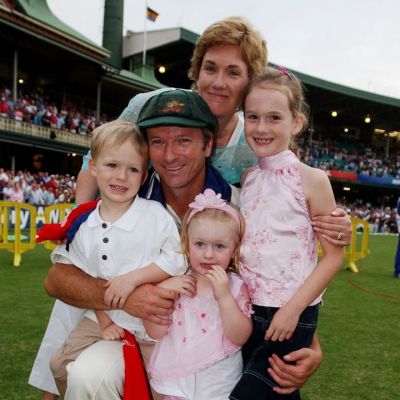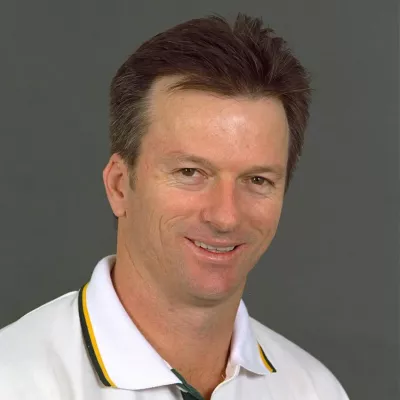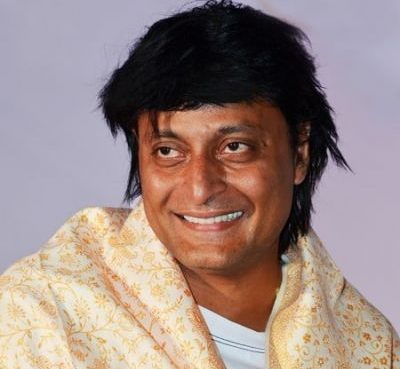Stephen Rodger Waugh, AO, the twin brother of cricketer Mark Waugh, was born on June 2, 1965, in Australia. He was a medium-pace bowler as well as a right-handed batter. He served as Australia’s captain from 1997 to 2004 and guided his country to victories in the 1999 Cricket World Cup and fifteen of their record-setting sixteen straight Test victories.
Quick Facts
| Nickname: | Tugga |
| Profession: | Former Australian Professional Cricketer |
| Date of Birth: | 2-6-1965 |
| Age (as of 2024): | 53 years |
| Birth Place: | Campise, Australia |
| Zodiac sign/Sun sign: | Gemini |
| Nationality: | Australia |
| Height | 5 feet 10 inches |
| Weight | 80 kg |
| Father: | Rodger Waugh |
| Mother: | Beverly Waugh |
| Sister: | NA |
| Brother: | Mark Waugh, Danny Waugh, Dean Waugh |
| Marital Status | Married |
| Wife | Lynette |
| Children | Yes |
| Net Worth | $2 million |
Steve Waugh Biography
Steve Waugh (born 2 June 1965) is a former Australian cricket player who is Mark Waugh’s fraternal twin. Waugh received the Order of Australia in recognition of his contributions to cricket. Throughout his career, he was a right-handed batsman who also excelled as a medium-pace bowler. He was born in New South Wales, where he started playing first-class cricket in 1984. From 1999 to 2004, he led the Australian Test cricket team, and with 168 appearances, he held the record for most caps in Test cricket history until Sachin Tendulkar of India overtook him in 2010. He held the record for the most Test cricket appearances until India’s Sachin Tendulkar shattered it in 2010.

Steve Waugh Height, Weight
Steve Waugh is 5 feet 10 inches tall. He weighs approximately 80 kg. He has lovely warm black eyes and Black locks. There is no information on his chest-waist-hip measurements, dress size, shoe size, biceps, and so on.
Career
- His whole career was in sharp contrast to the beginning of his international cricket career when he was a naive lad being baptized by fire against the ferocious West Indians. Here was a young man who could bat quite well and also toss effective medium-pacers to slow the scoring rate of the opposition. He acquired the moniker “Iceman” because of his ability to maintain composure, particularly while bowling with time running out. Even in the face of difficulty, Steve was as composed as they come, and this was evident in his improvement as a player. After making his international debut in the 1985–86 campaign, it took Steve some time to settle into the Test format, but he enjoyed the ODI format right away and also struggled a little bit in Australia’s 1987 World Cup victory.
- His twin brother Mark Waugh joined the national squad soon after the World Cup victory, and the siblings together went on to make numerous outstanding partnerships for the team. A more calm and collected attitude has begun to replace Steve’s early brawn and raw enthusiasm. Steve’s career took off in both formats starting in 1993 as he made runs for enjoyment, particularly in the lengthier format, while his white-ball career remained steady. He was a key player in 1995 when Australia defeated the West Indies for the first time in 20 years. A brilliant double century helped his side win the series, and from that point on, they controlled the world of cricket.
- Steve enjoyed playing on the big stage just as much as his twin brother Mark did, whether it was during the World Cups or the Ashes. Waugh’s batting posture and technique weren’t especially attractive, but they were quite successful. He was always ready to battle it out, even if it sometimes made him appear nasty. As he constructed his strikes brick by brick, blunting the rival bowlers into submission, efficiency was all that mattered to him. He was also a terrific spinner, which was a skill that few players from other cultures, notably Australians, had. Waugh batted methodically in ODIs, putting a lot of emphasis on rotating the strike before hitting the huge strokes when they were ready. Who can forget his World Cup 1999 match-winning century against South Africa? The Australians then went on a tear to win their second World Cup championship ever.
- Even in the most challenging circumstances, Waugh’s calm leadership as captain enabled the Australians to win those games. The squad became the most vocally combative team in the world with his offensive style of leadership, often getting under the skin of the opponent. Although it was an unconventional strategy, he successfully used it and encouraged his friends to do the same. He would coordinate the team’s on-field operations to confuse the opponent with Shane Warne, a world-class leg spinner. Waugh was the first Tests captain to think strategically, encouraging his side to play with abandon so the bowlers would have ample time to claim 20 wickets. It completely changed the format, and eventually, the other teams followed suit.
- Despite all of his successes, Steve’s career—and ODIs in particular—ended poorly. Both of the Waugh brothers were dismissed from the team after the 2002 VB Series debacle, which saw Australia lose to New Zealand and South Africa in the tri-series. Steve’s immediate dismissal from the leadership and placement on the benchmarked his exit from the team. Needless to say, it devastated him, and despite Mark’s decision to end his career in international cricket the same year, Steve went on to captain the Test team and score a respectable number of runs. The burden was on Steve, however, as Ricky Ponting was swiftly moving through the ranks and also helping Australia win their third World Cup in 2003. Steve ultimately said goodbye to cricket in the 2003–04 home series against India. He finished strong, firing a game-saving 80 to prevent the Indians from completing what would have been an unprecedented series victory.
- Waugh was a pioneer in charitable work off the field, establishing many shelters in Calcutta for leprosy sufferers. He often traveled to India for the same reason, and over time, he began spreading this to other countries, most notably Australia. Despite denying rumors that he was considering politics, he has also been a prominent social worker in his nation. Austin Waugh, who was a member of the Australian U19 squad that competed in the 2018 World Cup, is following in his father’s footsteps. Steve Waugh was a key figure in Australia’s ascent to the top of the world as a leader, tenacious batter, and inspiration to his teammates.
Records
- Steve Waugh led Australia to victory in the 1999 World Cup.
- In 168 test matches, he amassed 10,927 runs at an average of 51.06 and participated.
- In his test career, he recorded 32 centuries and 50 half centuries.
- Additionally, he was selected as the 1989 Wisden Cricketer of the Year, the 2000–2001 Wisden Australia Cricketer of the Year, and the 2001 Allan Border Medal.
Steve Waugh’s Net Worth
The estimated value of Steve Waugh’s net worth is $2 million as of February 2024, according taddlr.com (approx. INR 14.6 crores). His earnings as a professional cricket player for the Australian side were also included in his net worth. According to domain.com.au, Steve Waugh and his family are residents of an opulent Cronulla seaside home. The estimated price of the Steve Waugh residence is $4.27 million USD.

Brand Endorsement
For AVJennings, Blooms the Chemist, and Canon Australia, Steve Waugh serves as a brand ambassador. For one of Australia’s most reputable home developers, AVJennings, Steve has been a proud spokesperson since 2009. Steve plays a significant part in generating interest in AVJennings’ projects among the local population via the creation and growth of local communities, organizing local cricket matches, and participating in gala days.
Steve Waugh Wife, Marriage
Steve claims that his family is without a doubt his greatest accomplishment. Steve claims that despite his retirement from professional sports, his calendar is busier than ever.
Steve, who has been married to his high school sweetheart Lynette for 30 years, now serves as the family’s principal chauffeur while their three children gladly fill their free time with extracurricular activities such as cricket practice, horseback riding classes, and more.

Awards & Achievement
- The man with the most Test cricket appearances in history led the Australian Test cricket team from 1999 to 2004.
- Under his direction, the Australian side has won 67 out of 106 one-day international matches and 41 out of 57 Test matches.
won the 2004 “Australian of the Year” award and was included among the “Australian Living Treasures” for his admirable contributions to Australian society. - Waugh scored 82 and participated in a 207-run stand against Kenya that set an Australian record at the 1996 Cricket World Cup with his brother Mark Waugh.
- Known as the “Iceman” because of his World Cup performance in 1987
received the 2000 Australian Sports Medal - Steve was inducted into the Australian Cricket Hall of Fame in 2009, making him the 30th cricketer to do so.
Interesting Facts
- He was a right-handed batter and a medium-pace bowler.
- He was born in New South Wales, where he started his first-class cricket career in 1984. He led the Australian Test cricket team from 1999 to 2004. With 168 appearances, he held the record for most Test cricket caps held by a player until Sachin Tendulkar of India overtook him in 2010.
- Initially seen as merely having “average potential,” he eventually lost his Test spot to his brother Mark, but he went on to become one of the greatest batters of all time.
- He led Australia to fifteen of their record sixteen straight Test wins, to victory in the 1999 Cricket World Cup, and is one of only 12 players to have scored over 10,000 Test runs. He was named Australian of the Year in 2004 for his philanthropic work, and inducted into the ICC Cricket Hall of Fame in front of his home fans at the Sydney Cricket Ground in January 2010.
- Waugh has received the Order of Australia and the Australian Sports Medal, and the National Trust of Australia has included him among the 100 Australian Living Treasures.





